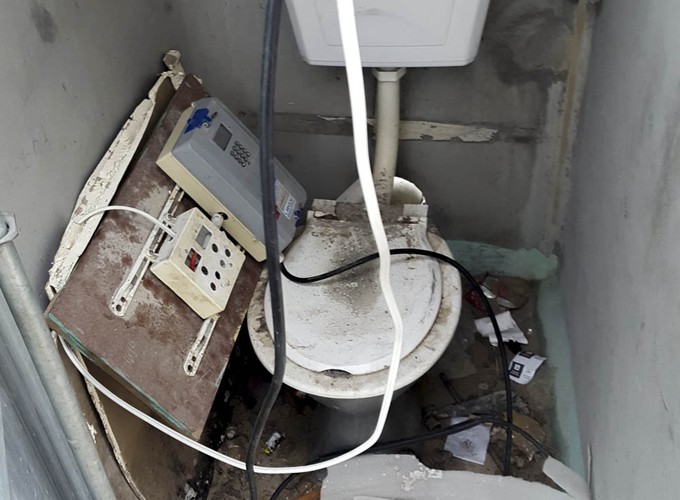Toilets connected to kitchen sink in new houses, says resident
No electricity since February in Mfuleni housing project
Beneficiaries of a housing project in Bardale’s Phase 3 in Mfuleni say that although they have been given houses, it still feels like living in a shack because the houses are not up to standard.
A number of residents of Phase 3 were moved from their shacks in November last year and others in February this year so that new houses could be built for them.
Those who have moved into their new houses complain that the houses do not have adequate plumbing or ventilation and that their complaints to the contractors and the provincial department of Human Settlements go unheard.
Resident Angy Peter says she is not moving into her home until the department sorts out the problems. Peter told GroundUp she had to ask the contractors herself to fix the plumbing and to install a ventilation grid in her house.
“The pipes from the kitchen sink, the bathroom sink and the toilet have all been attached together, as you can see. Sometimes the waste from the toilet comes through to the kitchen sink. That is not only disgusting, but unhygienic too,” says Peter.
The houses do not have any holes for ventilation; this causes the walls to go damp and that causes mould. When I asked one of the workers, I was told that this was to prevent people from getting TB. I mean, really! Can you believe that?”
GroundUp was taken around Phase 3 to seven houses, all with similar problems, such as plumbing, no ventilation grids and no electricity.
During construction, many residents removed their own electricity boxes and put them in the broken toilets outside their shacks for safekeeping. In their new houses, many residents have solved the electricity problem by connecting their own electricity from the toilets.
“When we enquire from Eskom about the electricity boxes, we are told that they cannot do anything about it because the boxes were not moved by them and residents would be fined for illegal connections,” says Peter.
The spokesperson for the provincial department of Human Settlements, Zalisile Mbali, said the housing project had been approved for 1,000 potential beneficiaries but some had refused. All those who had accepted the programme had received their 48 square metre units, Mbali said.
“No one was evicted, the beneficiaries were requested to shift to open spaces to allow contractors to build the units as per norms and standards.”
Mbali said national building standards did not require vents and as a result these had not been installed.
“When main holes or drains are blocked in areas like Bardale, Mfuleni, Nyanga and Khayelitsha, the beneficiaries must inform the City of Cape Town Municipality, to clean the main sewer line.”
Queries about electricity should be directed through the municipal offices to Eskom, said Mbali.
This story has been updated to include comment from the provincial department of Human Settlements.
Support independent journalism
Donate using Payfast

Don't miss out on the latest news
We respect your privacy, and promise we won't spam you.
Next: Disappointing study results show how difficult HIV prevention is
Previous: 20 Mdantsane families share a toilet
© 2016 GroundUp. 
This article is licensed under a Creative Commons Attribution-NoDerivatives 4.0 International License.
You may republish this article, so long as you credit the authors and GroundUp, and do not change the text. Please include a link back to the original article.

